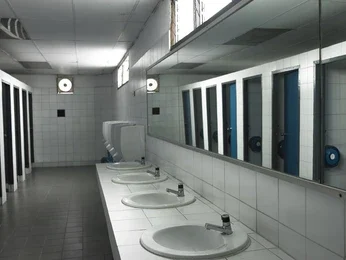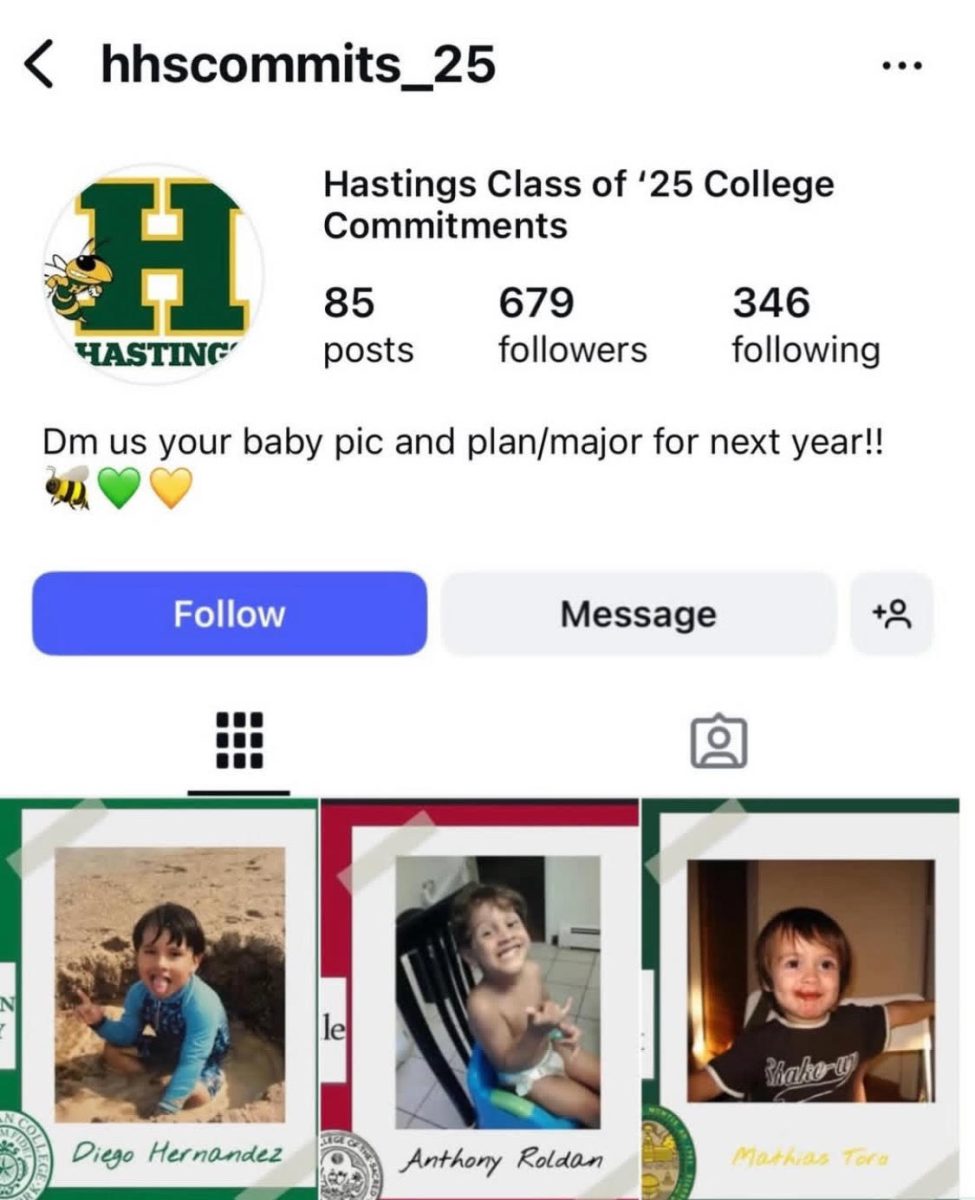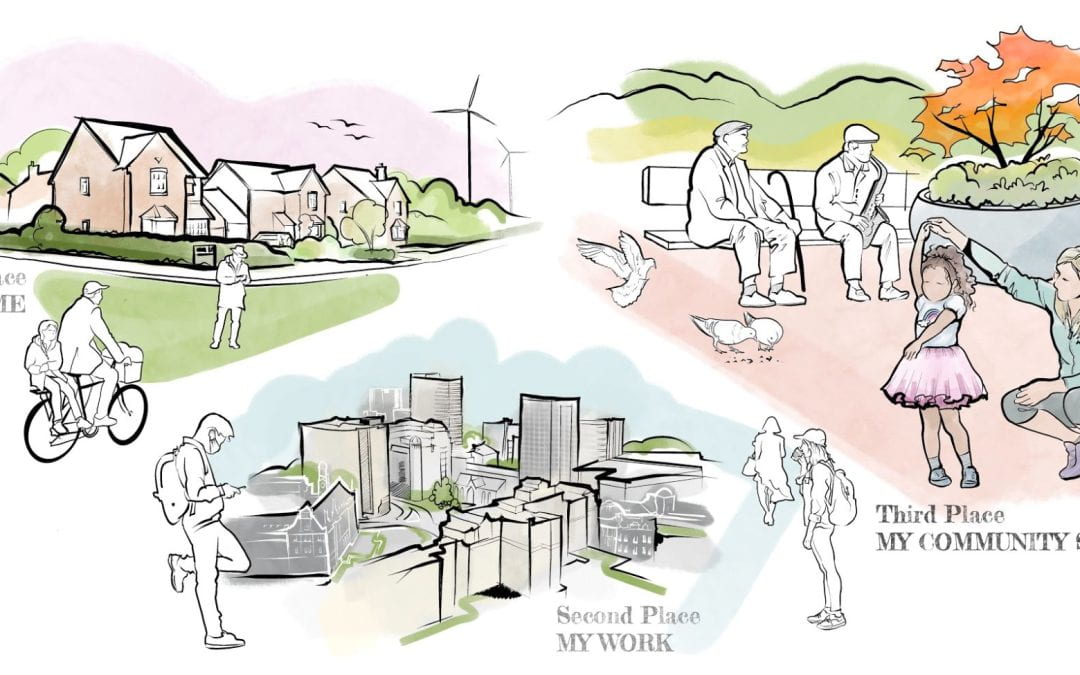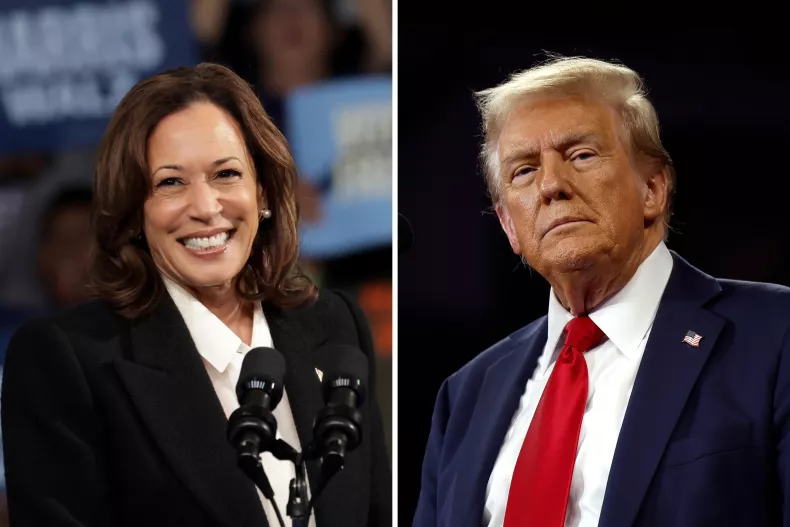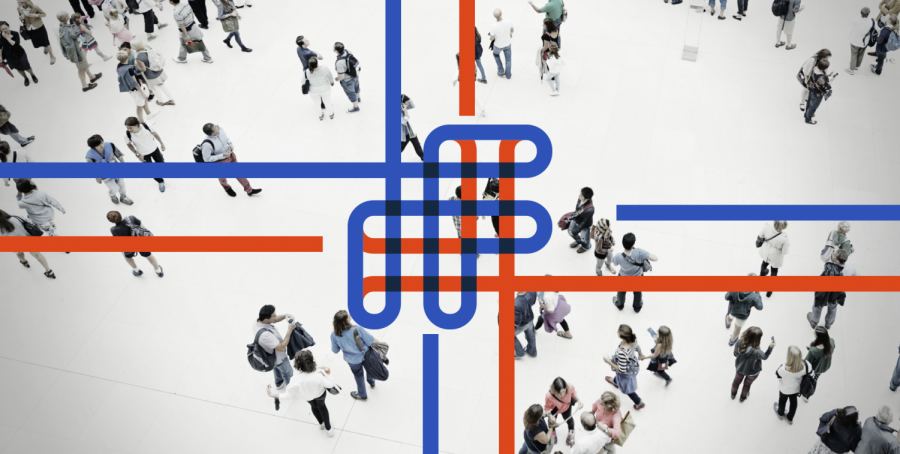How to Achieve a More Pluralistic Society
October 11, 2020
In this follow-up article as a response to my article that explored the religious ignorance and lack of religious diversity in Hastings, I interviewed Hannah Minks, the project manager of the Interfaith Youth Core (IFYC). This organization connects people around the country and world in religious dialogue, social action, and interfaith leadership, with the constant reminder that “we are each others’ harvest: we are each other’s business: we are each other’s magnitude and bond”(Gwendolyn Brooks). Below is the interview transcript:
Could you tell me a little bit about what you do?
“I also come from a very homogenous town; I grew up in a small town in Ohio which has little to no religious diversity. In my case, it’s mostly a conservative Christian town. That’s part of what drew me to Interfaith work when I was in college, and then ultimately working at Interfaith Youth Core in Chicago, because I guess I saw very readily an application for why it’s important to bring the ideology of pluralism to some kind of collective consciousness, especially where people don’t have access to religious diversity. I heard somebody say one time that while the United States is a country that was built on religious freedom, it runs on religious fuel. So I think given that reality, that’s a lot of what drives me to work at IFYC and trying to see such an interesting application for how religious language in particular can really help build social cohesion and strength in the civic fabric.”
A history teacher at my school for 21 years remarked that religion is a “big blindspot” for students, and a junior who identifies as Muslim said that she doesn’t know anyone else in the district who is Muslim, and she said this was problematic for a multitude of social and political reasons, including a huge reliance on the media for answers. A survey completed by the Public Religion Research Institute found that roughly one-fifth of respondents established that they rarely or never encounter people who don’t share their religion. How can we increase religious dialogue and bridge community in my town?
“Yeah, that’s the million-dollar question. There’s an IFYC answer to this, and then there’s a slightly different Hannah Minks answer to this. So part of why IFYC works with higher-ed specifically is because college students are being educated and prepared to contribute to society, and not everyone but a lot of folks have their own communities that they come from that are also homogenous. So if they’re educated in matters of religious diversity, it’s no longer a blindspot, and then the hope is that that will very practiclly manifest into how they conduct themselves in their communities and in their profession. For example, we’ve had IFYC alums who will come from a small town like yours or mine that is homogenous and lacks religious diversity, and they will learn about IFYC, learn about our program, go through our program, graduate, get a job, and then they’re now reaching back out to us and asking us for funds so that way they can start interfaith dialogue dinners and political religious conversations back in their towns or in their workplaces. So that’s kind of the strategy we pick in our organizaiton. But I would share as well, just being a small town person, is that lots of times I find that the religious diversity is actually in close enough proximity that if people are aware of it and organize the right opportunities, it actually does kind of bring it to surface. For example, here in Ohio there is this neighborhood that is historically very Italian and Catholic and it’s where my parents grew up actually, and then the neighborhood started changing because refugees were starting to settle there. And then you have this weird dynamic where the historically Italian people are like ‘Who are these people?’ but then [an organization] started putting portraits of the refugee families in the park with a little bio about them kind of etched in a plaque and they were just being very clever about how they were introducing this population to the community, fully knowing that it was going to be hard to get everyone to sit down and actually physically talk to one another. So I think just having really clever leadership that has its own awareness of the diversity that is available to them is so helpful.”
And even when we have conversations in the classroom in our rather secular community, it is a slippery slope. A senior at my high school noted the role that in an English class they “had this debate in class whether God was real or not and it seemed to be little discrediting of people who believed in God. We also read books about people committing terrible acts because they do believe in God…I feel like in Hastings most of the people who I’ve had conversations about religion with kind of brush it aside and they don’t really take it seriously.” How do we bridge this gap without being imposing? Can these conversations even be held in the classroom?
“So, I actually teached high school for years, but it was in a Catholic setting and I taught theology so I fortunately never had to kind of tiptoe around the separation of church and state since it was my job to talk about God in school. During that time with my own kind of interfaith awareness I also knew that ‘ok, just because it’s a Catholic School I don’t want to presume anything about my students, even in that scenario.’ So the way I would usually approach that is just asking people about who inspires them and why, and if they have a particular world-view, or who is somebody who has a different worldview from their own, who they find inspiring. So kind of designing questions for some self-reflection that’s not as on the nose as like ‘what’s you’re religion and get ready to defend God if you’re religious’ – because I think that can be quite intimidating and nobody should have that responsibility. But, I think there are definitely ways that you can highlight like ‘ok, there is actually the dynamic of religion is at play more often than we think, and so designing the conversation such that it surfaces that I think is really inspiring.’ Just to say, ‘who do you appreciate that’s different from you and why?.’ But when people like Tony Morrison die, and I think about Tony Morrison as someone I was introduced to meaninfully in my high school years when reading Beloved and different things from her, and it’s very very clear to me in my adulthood that Beloved would not have happened if there were not a worldview behind it, and we just never talked about that. So it’s interesting that we’ll talk about the race, gender, and sexual orientation of the authors that we read and study, and for some reason we just don’t talk about what their worldview is be it secular or sacred in nature and I think that’s a huge miss, because that’s an oppotunity to appreciate and get to know the fullness of the people who are inspiring us and we just don’t go there.”
A junior noted the harmful role that stereotyping can play: “Every Sunday from grades one to eight, I went to Catholic school and church and when I would tell this to people they would be like ‘Oh, well you shouldn’t be going to the Catholic Church because all Catholics hate gay people.’ That made me upset because obviously that is not the case at all. I’m very tolerant of gay people, I accept and embrace gay people, I literally am a gay person. And for people to think that I am homophobic because of my religion, that really hurts.” How do we end steryotyping – especially in communities where religion is not dominant and many students are atheist and may want nothing to do with religion?
“Gosh, I would say I think there are a couple of things that come to mind immediately, and that’s just strategically and tactically speaking. You can either think about it as changing the institutions themselves – so what does it look like for example if you go to the local Catholic Church or if the junior ends up communicating to their Catholic Church ‘this is something I experienced; is there a way that we can have a program here that prepares people to be able to encounter this issue in a productive way or is there a way that we can be putting ourselves out in the community a little bit better that would diminish the stereotype from within?’ Handling it within the church bodies I think could be good, but also I think another benefit if you’re a student who ends up being involved in IFYC is that you’re personally, on a very personal level, just going to become much more empowered to be able to handle those situations. So, me being Catholic and having to deal with that particular stereotype myself, granted I’m not gay, but you know I do have a position where I agree with that quote where I think that the Church should be accepting of people of all orientations, so I think that if I were in high school and someone said ‘Oh, you’re Catholic, you shouldn’t go to that Church, they don’t like gay people’ I would have felt so on the spot and would not have known what to do with that, I probably would have just been silent and thought about it and wish I could have said something I could not come up with in the moment. So yeah, also personally just seeking out the resources that can prepare you to have the courage and anticipate what you would say I think is a good idea. That’s so hard though, because I’d hate to put the onus on someone who is the object of the stereotype to speak out against it. Sometimes we have to be the antithesis to the stereotypes that people think we belong to.”
Very little research has investigated bullying based on religious differences. Although I don’t think there is rapant bullying, a junior added, “I think Islamophobia is a real thing and my friends make jokes about 9/11 and they don’t realize how insensitive it is…it like desensitizes the whole religion, the whole culture, and I think that also needs to be talked about.” Even when she is not in school, in the airport for instance, she explains the discomfort and alienation she feels to have to: “to see my family, and worry about my dad when we go to the airport and be afraid to speak Arabic in public or things like that, I don’t even have the words to describe it.” How do we fix this? What can educators do? What can students do?
“Similar to my response to my earlier question, I’m really interested in this emerging discipline called social design, and it’s a lot of about using design principles that people have used for a long time, asesthics, and product design but applying it to civic life, where a good example of this is introducing family portraits of diverse refugees in the city park. And I think that’s such a fascinating and compelling way to address the problem, because a lot of times I think we feel this pressure that every person has to have the exact type of education to make sure they all know the right thing to say and that we can really just be harmonious with one another and build understanding but humans are messy by nature, and relationships are brought by nature and so that’s why I like the idea of ‘how do you strategize just the very construction of our civic spaces – what elements of our civic life do we take for granted and think are unchangeable but we actually could change and introduce that would give people some pause. Maybe another parallel you can make is just the notion of Hollywood – you know, Hollywood I think always is kind of seen as the progressive space where they give visibility to more progressive issues and it’s kind of moved the needle on society, towards society being more tolerant in some ways, but similarly, not that we should always move our spaces to be more liberal and progressive, because I too in all honesty tend to be more conservative, but I think for those things that undoubtedly would strengthen social cohesion and say ‘you might not realize it but there are people in your backyard who are distanced from you and it would actually behoove you to actually understand them, and that would actually be a good thing even if you don’t agree with them – like how can we share our life together in a way that is marked with cooperation and if that can be introduced into the very ways we navigate.”
Have you had personal experiences with young adults or educators or really anyone whose story is really compelling and inspires you to do your work?
“Immediately I think of my dear friend Usra, who I actually met through IFYC; she is more politically progresive and she grew up Muslim and is Muslim now, and she is one of my dearest friends. I’ve been able to identify with her about more things that I experience as a millennial in current times who is religiously devout than any other Catholic or Christian I’ve met. Because her and I will talk about things like ‘do people seem to think you’re kind of silly for being religiously devout still?’ – like most millennials are known for being spiritual but not religious – she helped hold me accountable to be the level of religiosity that I am and to have this space that I want to keep. That’s just been one of the richest friendships I’ve ever had, so I don’t know, it’s hard for me to wrap that up in a way that will sound snappy and compelling because it’s like years’ worth of relationship and maybe one thing I can add quickly is that her and I actually – this is kind of like a more vulnerable thing for me to say – but in the 2016 election I voted for Trump and Ursa didn’t realize that I was even more politically conservative until one day she was talking a lot about ‘oh, how could anyone support somebody with this Muslim ban?’ like was having a very genuine emotional reaction to the travel ban and when that time happened I think that was actually in 2017 but she had no idea what my sentiments were like about having voting the way I did and so I spoke up and I just said, ‘Oh, Ursa this is killing me because I feel so sad I voted for Trump and to hear you talk about this and how it’s affecting you is really kind of landing with me in a certain emotional way where it’s making me feel badly that my vote had such a negative impact on your life experience and yet there are all these values that I’ve had for years and years and years prior to Trump even being on the political map and so it was hard for me to abandon those values even though I don’t necessarily appreciate that he’s the mouthpiece for them’ so that was like a really stunning thing, to think that her and I had been friends for years and we didn’t even actually know the extent of our own divergence until that moment, and to feel like her and I could talk about it because we had laid such a good foundation and because we’d been so open and honest about our faiths and our different religious experiences, I think really allowed us to use that as a deepening of our friendship as opposed to a threat to it.
Do you think there is a difference between accepting/tolerating and supporting – a religion?
“Yes, I do think there is a difference. The word ‘tolerate’ in matters of religion and faith especially always – it always didn’t fit well with me, and I think it’s because logically it seems sort of strange to me, like by virtue of belonging to any religious dogma, tolerance is kind of off the table. I’ll speak very personally, just as an example. I’ll say that as a Catholic, I believe in the Trinity, I believe that Jesus is son of God, and father, son, Holy Spirit, all that jazz. And if I were to tolerate something outside of that, I wonder if that implies something about the nature of that ‘capital t’ Truth that I subscribe to. So, because of that, I actually prefer the word ‘support’ in a way that might seem a little misleading because I’m sure some people hear that and think like, ‘oh, that means I have to advocate for somebody of another religion, and like what does that imply, but I actually think you should. As a fellow truth-seeker, as a fellow person who subscribes to a truth that i think is ‘capital t’ I don’t know what that’s like and I don’t want yours to be under threat any more than I want mine to be under threat. So how do I support you as a fellow person who has a right to their worldview, has a right to the way they behave civically as it relates to that world, and that goes for secular people too. I think atheists and secular humans have just as much a right to that. But to say that I tolerate something, I’m actually less inclined to do that. I think our society makes ‘tolerate’ seem like ‘coexist’ and that’s a really lovely thing but I’m approaching it like very very logically. Like I don’t want to tolerate abortion, because I don’t, you know, I just don’t tolerate it. But that does not mean that I don’t want you to live in a society where you have the right, and the dignity, to be able to be intolerant of beliefs that are outside of your worldview in a similar way.
To anyone thinking of starting an IFYC club, what would be your advice?
“Oh, wow, I would say to be prepared for it to be slow and steady work is probably the chief advice I would give, because we’ve all grown up under the idea that talking about religion and politics and things of that ilcur impolite, so you’re already starting on an endeavor that’s quite counter-cultural in a way that I think is so exciting and necessary, but nonetheless, it’s countercultural, so I think people are generally a bit sheepish to initially kind of get involved or talk very openly about matters of faith and religion, and all of that. So I usually use the metaphor too of – I use the Moses story of leading people to a promised land that you’ll never actually see for yourself – that’s a lot of times what interfaith leadership feels like.”
